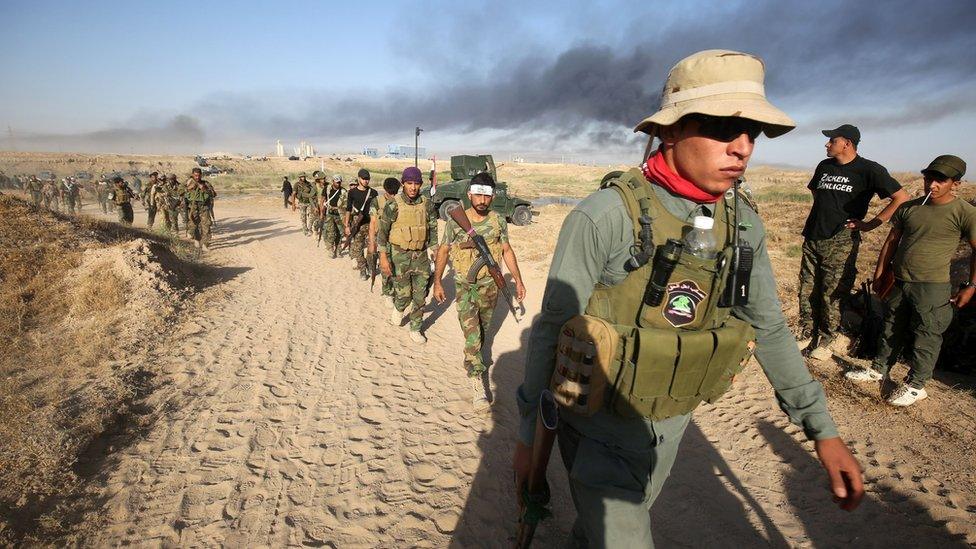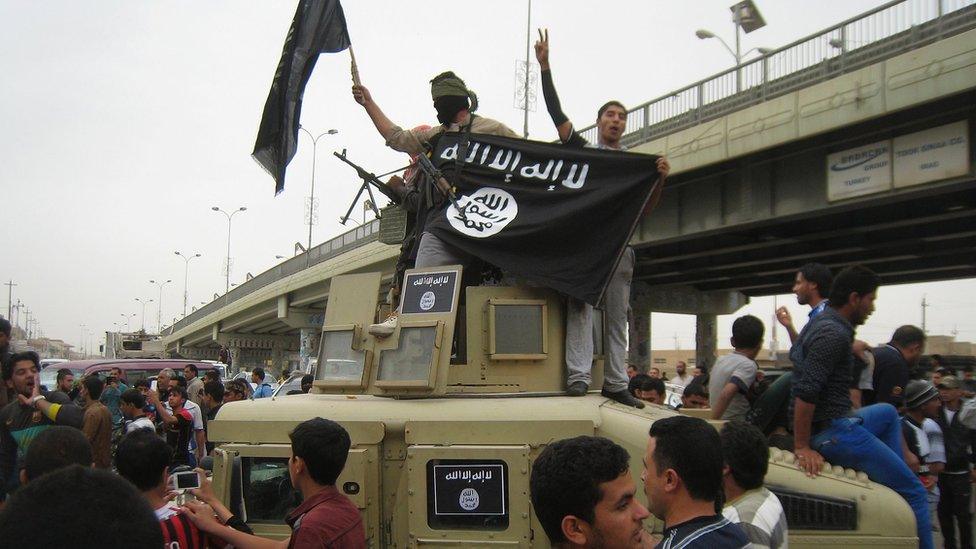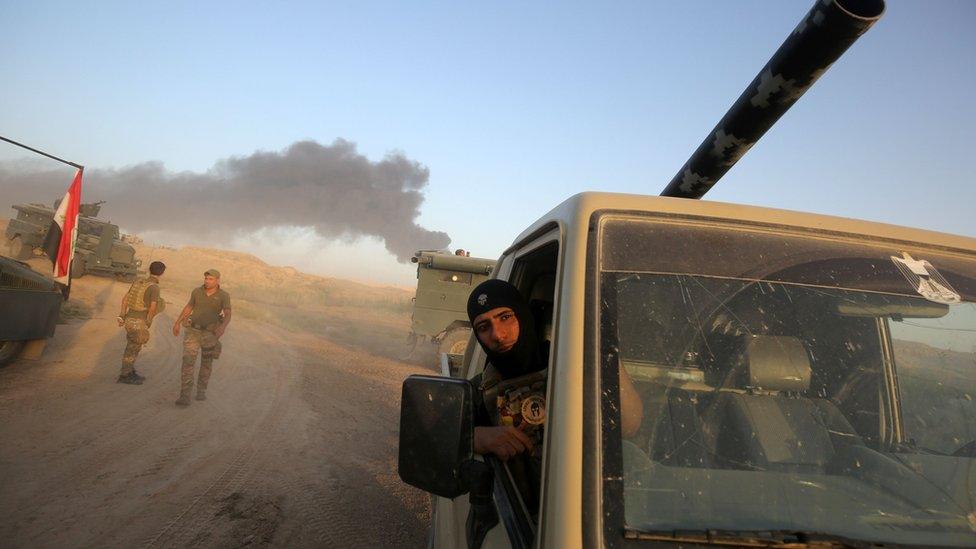Iraq crisis: How tough will it be to take Falluja from IS?
- Published

Iraqi pro-government forces advance towards Falluja on Monday. There are conflicting assessments about the battle they face
The battle for Falluja, which has been looming for months, seems to be finally under way.
The city has been attacked many times and bombed and shelled almost incessantly since it fell into the militants' hands in January 2014.
It has withstood all that, despite huge destruction and many casualties.
Now the government has committed itself to "liberating" the city once and for all, in an operation codenamed "Break Terrorism".
Thousands of troops, special forces, Shia militias and Sunni tribal fighters have been marshalled for the offensive, and the Prime Minister has declared that "a moment of great victory" is imminent.
But there are conflicting assessments of how tough the battle will be.
Some believe that IS has taken such a pounding in the town that its ability to resist has been sapped. Others, in touch with sources inside the beleaguered city, say the militants have long been preparing to face such an offensive and have deployed their full array of defences, including many roadside bombs and booby traps.
Weeks of fighting ahead
Most of the IS fighters are believed to be from Falluja itself or nearby areas such as Jurf al-Sakhr, which have been overrun and occupied by Iranian-backed Shia militias.
So they are fighting on home turf, and, as some will see it, for their Sunni community - although some of the attacking forces will be Sunni tribesmen, some of them thirsting to avenge IS excesses.

There is no clear view of how much resistance the militants will put up. But even optimists on the government side believe the battle will last at least two or three weeks.
The most recent similar offensive was at Ramadi, the provincial capital of al-Anbar province which also includes Falluja.
The government declared victory there in early January when its forces entered Ramadi city centre, but it took several weeks to secure the adjacent suburbs and outlying areas.
The path to Mosul
The loss of such an iconic prize as Falluja would be a considerable blow to IS.
Controlling the main highway from Baghdad to both Jordan and Syria, the city has always been a hotbed of Sunni defiance. It became a symbol of resistance to the Americans in violent battles in 2004 which left massive destruction and thousands dead.

IS swept into Falluja in early 2014 after the city was abandoned by government forces
When IS seized it in January 2014, Falluja was already in a state of revolt against the central government.
If it falls back to the government quickly and relatively easily, Baghdad will be encouraged to divert more troops and resources northwards to the biggest challenge of all, the battle for Mosul.
But even if IS loses at Falluja, inflicting heavy losses on the attacking forces - especially the elite Counter Terrorism Force - could set back hopes of a campaign to recapture Mosul this year.
Sectarian consequences
Falluja will also be important as a template for which forces take part in such operations and who holds the ground afterwards.
Iranian-backed Shia militias, grouped at least nominally as official "Popular Mobilisation" auxiliary forces, are taking part in the "Break Terrorism" campaign.

The pro-government forces are expected to face at least two to three weeks of fighting in Falluja
But there is supposedly an agreement that they will play a perimeter role and not be deployed in Falluja itself, out of concern for the sectarian consequences.
In previous offensives where they have played a leading role, in the Diyala and Tikrit areas east and north of Baghdad, the Shia militias have been accused of revenge killings and destroying Sunni property.
If Falluja is left virtually demolished by the operation and the population largely displaced, that will also not augur well for a campaign to regain Mosul, another largely Sunni conurbation.